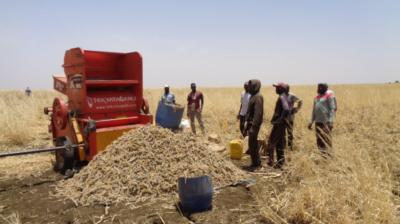Tokens of Peace? Women's Representation in the Juba Peace Process
This article evaluates women’s representation in the 2019–20 peace negotiations and the extent to which their interests are reflected in the Juba Peace Agreement. With East Sudan as a case study, this article explores women peacebuilders’ experiences at and around the peace table in Juba. Building on interviews conducted in 2021, this article argues that women’s inroads to the peace negotiations were tokenistic. Women’s substantive representation was hampered by the structure of the peace talks, which were divided into different geographical tracks. In a patriarchal context such as the East, this track model did not provide a de facto political space for women to exercise meaningful influence. As cultural norms in this region domesticate women, the women from the East did not enter the talks with a political track record and they were isolated from important support networks. Added to that, the article suggests further that tokenistic inclusion may even lead to backlash effects as female negotiators have to bear the responsibility for a peace agreement that resulted in tribally charged conflict.
Liv Tønnessen







